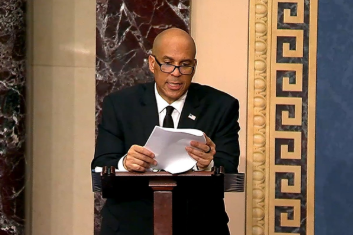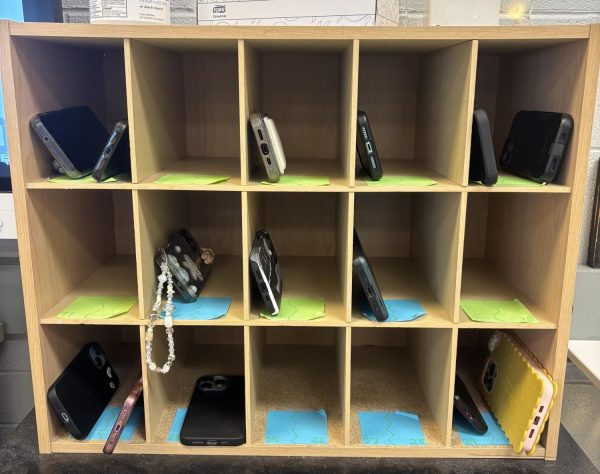Life After High School
There are options other than College.
College is typically the next step in a young adult’s life. For some they feel that college is not the place for them. It could be because of financial reasons, personal reasons, or just the fact that school is not for them. College seems to be the goal for almost all high schoolers now a day. From Middle School, students are bombarded by the question “Where are you going to college?” To the first day they step into high school they feel the pressure to decide their whole future right then. “Pick classes that will help you get into a good school” is what they say. This pressure is actually affecting students’ mental health. “We are seeing more cases in terms of higher stress levels and in terms of anxiety, depression, and other diagnosed disorders than we have seen in the past. A study done by Stanford Medical Center a few years ago confirmed this [Dr. Jun Ma, 2005, Journal of Adolescent Health]… The experts believe that there is definitely something going on around this notion of kids being much more stressed these days – above and beyond the better detection rates.” (Denise Pope) Pope then refers to a study that she conducted surveying students to find if there is a connection in school to this increase in declining mental health. “Our Challenge Success survey (26 schools, 10,275 students, 87% high schools, with 65% of them public) gave the kids a worry and stress scale. 67% of our sample said they are often or always stressed about school. On the qualitative question, i.e. “what if anything causes you stress,” the top ten answers from the majority of our students were school related. Ten or twenty years ago the top answer for a teen might have been family issues, divorce, bullying or sexual identity, but they would not primarily have been school related.” said Pope in the interview. The pressure from schools is clearly affecting the current day high schooler. So for some the idea of continuing on in this high pressure environment is not appealing.
For those who are not very interested in pursuing the “typical” career path here is an alternative option; OTech is a schooling option in high school for those who would rather go into a trade. The reality is that there are literally millions of people who work in skilled labor jobs, and they’re paid well, especially compared to college graduates. The average starting salary for a college graduate is $45,000. While the average salary of someone who went through trade school is $42,000. Not much of a difference, and the trade school graduate is entering the workforce at least two years sooner. In addition, it is almost guaranteed a job coming out of school. There are numerous stories of large energy and construction projects that had to be canceled not due to money shortages, but due to labor shortages. Companies simply can’t find the skills to complete the work needed,” said Jeremy Anderberg in an article. There are good jobs that do not require a higher level of education. Dental Hygienists make approximately $68,000 per year and do not require a college degree. Insurance agents do not need a college education and make around $47,000 per year. First-line supervisors of mechanics, installers, and repairers make $60,250 with only a high school diploma required. These are just a few of the careers available to obtain without a college education. Starting a business is another option that a college degree is not needed. “There are over 22 million individuals who are self-employed in the U.S., with no employees other than themselves. That’s about 14% of the entire American workforce. With drive, initiative, and a quality product, it may be more attainable than you think to make it on your own… The barriers to starting a business have never been lower. With a computer and an internet connection, there are a slew of business opportunities that can be launched with even just $100 from the comfort of your own home.” Said Anderberg . There are many alternatives for those who do not want to further academic schooling after high school.
However the idea of not going to college evokes a few different responses. Some think lesser of the person, and education is seen as a status symbol. Others tell them that they can not live life without going to college. “What irks many non-grads about their lack of degrees is we are often forced to take lower-paying jobs that have the exact same responsibilities as jobs given to grads for a higher wage. I’ve even seen couples break up, friends exclude others and parents raise hell over the social standard of getting a degree. Personally, I never would want to deal with people who blindly reject or talk down to those who don’t have degrees, regardless of what merits and achievements either party may have.” Ossiana Tepfenhart said in her article. So many people are constantly encouraging others to go to college, they see it as necessary. However Tepfenhart says, “If we flunked out, we don’t want to be shamed for it or told to try again.This could make us accrue thousands in debt.If we dropped out to pursue our dreams, we don’t want to hear how our dreams suck. If we dropped out due to debt issues or a lack of funds, we don’t want to hear how it’s affordable. College is a sore spot for a lot of us, and while we might want to go back, we definitely don’t want to hear other people tell us to do so. College isn’t something you should commit to without careful consideration. Oftentimes, we wish other people saw it that way. It’s also something we wish other people wouldn’t push as much as they do. After all, what works for others may not work for us.” Those who have gone to college or are going to college can not should be respected.
Your donation will support the student journalists of West Bloomfield High School. Your contribution will allow us to purchase equipment and cover our annual website hosting costs.

This is Reilly's third year writing for Spectrum and is an editor. She is a Senior. She loves writing creative pieces for the newspaper. She would love...












